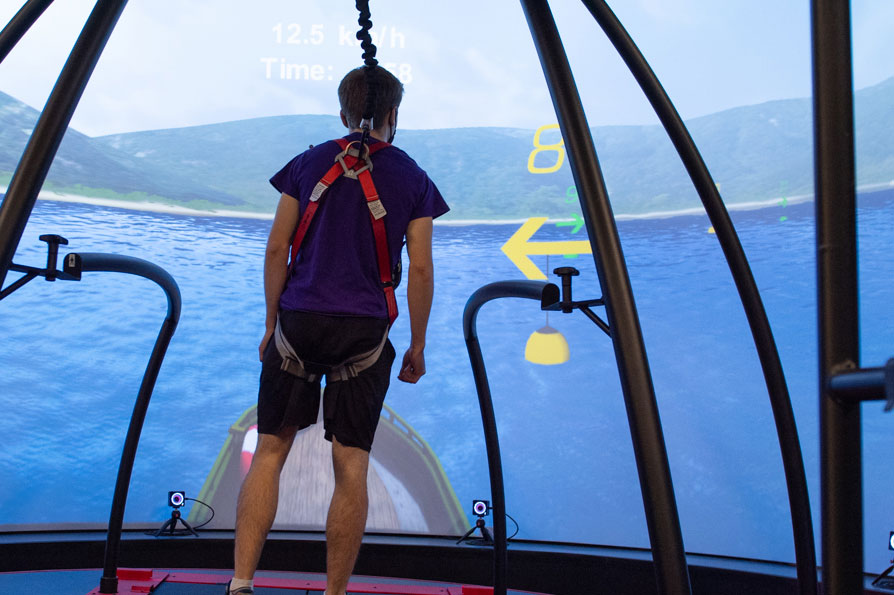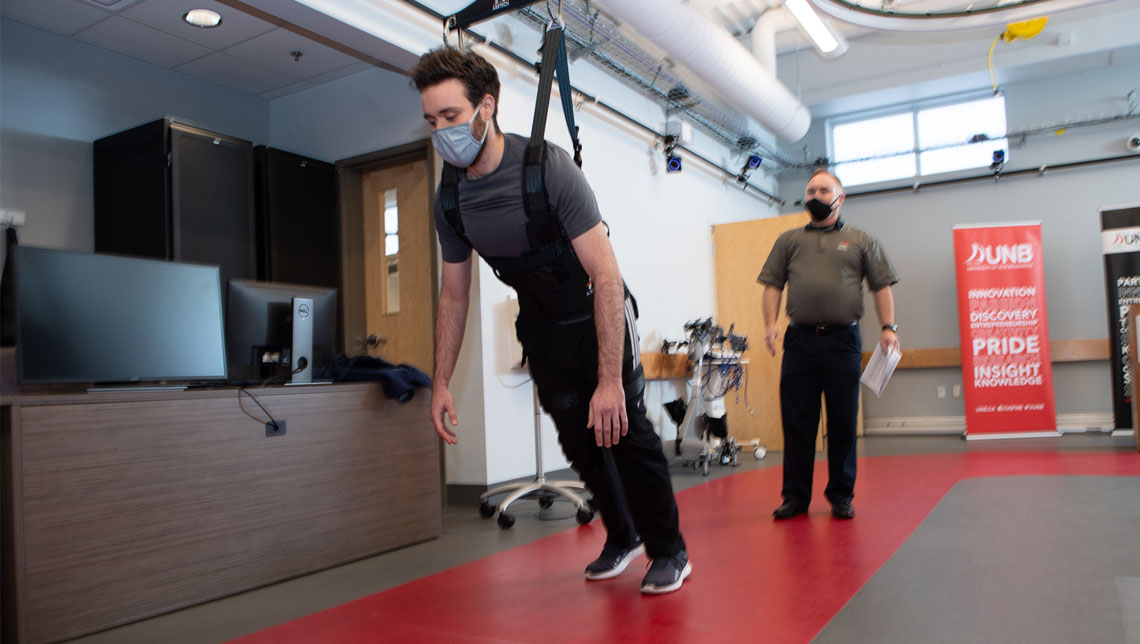What's Happening at UNB
ALUMNI NEWS MAGAZINE | Summer 2022

Last November, UNB opened a new research facility that builds on six decades of specialized research leadership at its Institute of Biomedical Engineering (IBME). Thanks to the financial support from private, provincial and federal funders, the Centre for Adaptive Rehabilitation Engineering (CARE) enables specialized neurological rehabilitation in a research space furnished with advanced equipment.
“Our new facility provides an amazing range of technologies that represent state-of-the-art capabilities for rehabilitation research and is unique in Canada in combining these technologies under a single roof,” says Dr. Jon Sensinger, director of IBME and professor of electrical and computer engineering at UNB. “The technology is incredibly adaptable and powerful, and in combination with our artificial intelligence and advanced computing capacities, we will be able to facilitate faster and better rehabilitation and healthy aging plans for patients, provide new evidence and insight through research, and support our clinical and industry partners.”
 The CARE facility includes several specialized laboratories. CAREN, a Computer Assisted Rehabilitation Environment, features a dynamic environment that includes a highly responsive platform and treadmill platform surrounded by a wrap-around, immersive virtual reality screen. The instrumented treadmill platform tilts and shifts in response to user motions and simulated landscapes.
The CARE facility includes several specialized laboratories. CAREN, a Computer Assisted Rehabilitation Environment, features a dynamic environment that includes a highly responsive platform and treadmill platform surrounded by a wrap-around, immersive virtual reality screen. The instrumented treadmill platform tilts and shifts in response to user motions and simulated landscapes.
The mobility lab features a ZeroG body-support track and weight harness that can dynamically reduce a user’s weight, enabling people with mobility issues to get up and walk safely. The Activities of Daily Living lab provides a full living space equipped with pressure-sensing flooring, motion-capture, and eye-tracking systems. Combined with a suite of peripheral technology including brain sensors, researchers can assess how people behave while completing real-world tasks.
Housed in the newly built Pickett Wing expansion of the IBME building, CARE was made possible thanks to a visionary donation of $400,000 by Barbara and Bob Pickett (MScCE’63, BScCE’61)
“Rehabilitation is something that means a great deal to both of us,” says Bob Pickett. “Barbara and I are pleased to have supported the creation of this world-class research facility here in New Brunswick.”
“UNB’s Institute of Biomedical Engineering exemplifies some of the best qualities of university research: a progressive confluence of knowledge, innovation and leadership over decades, addressing complex and important challenges faced in our lives, all the while teaching and training the next generation of experts,” says Dr. Paul Mazerolle, president and vice-chancellor of UNB.